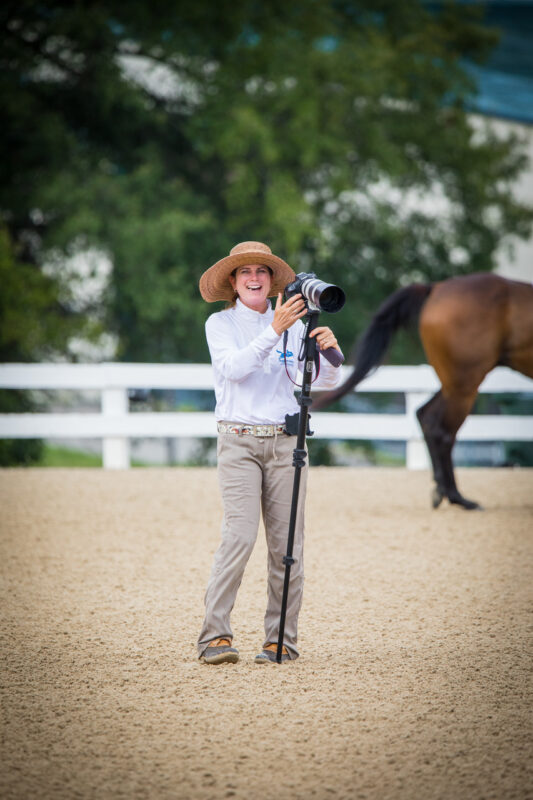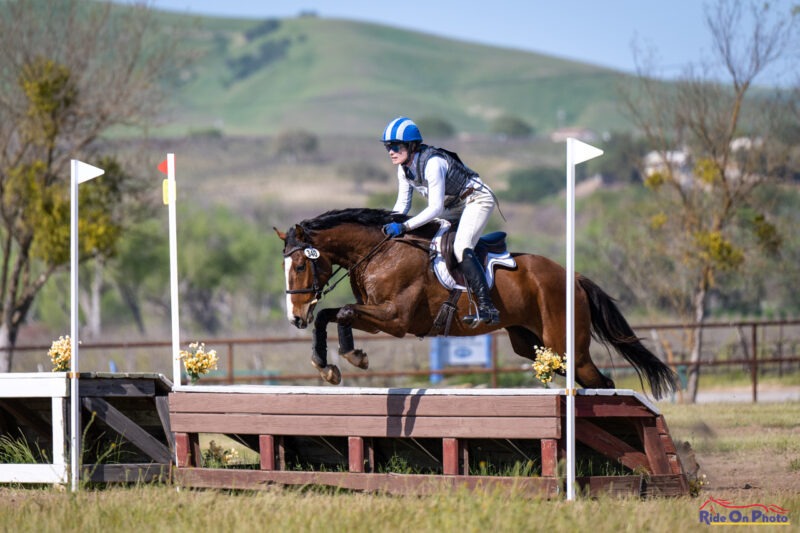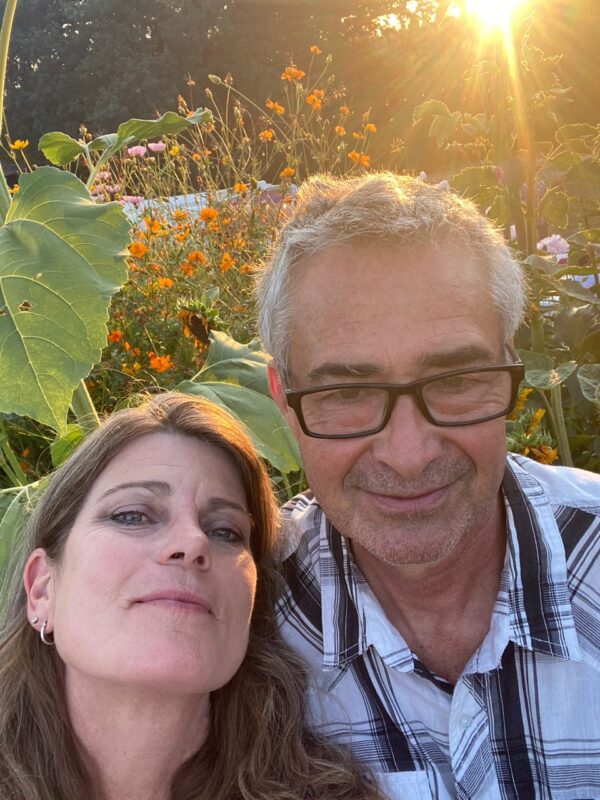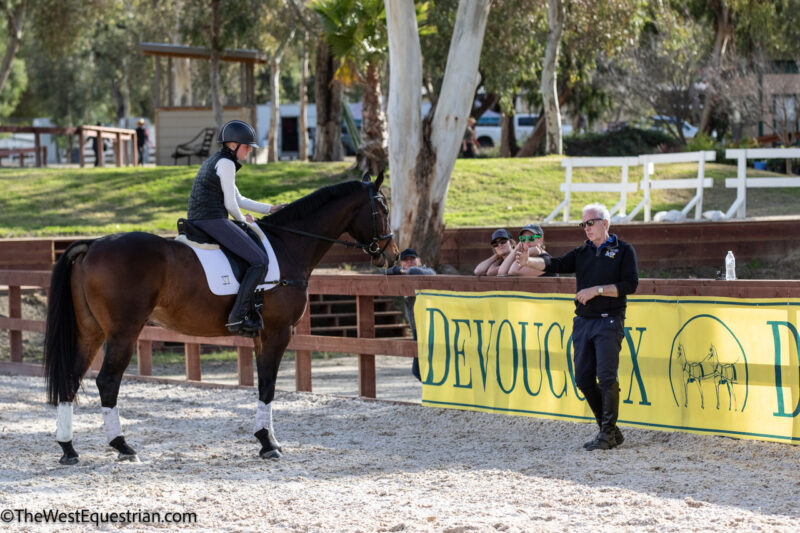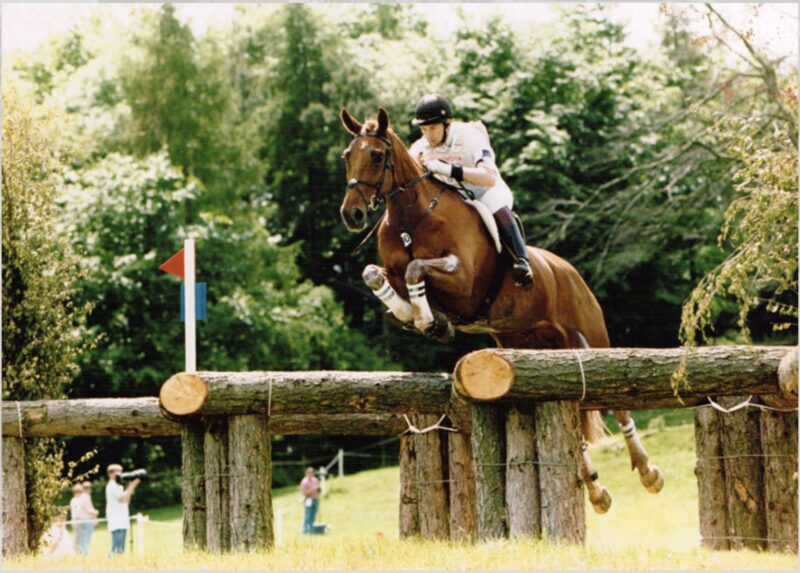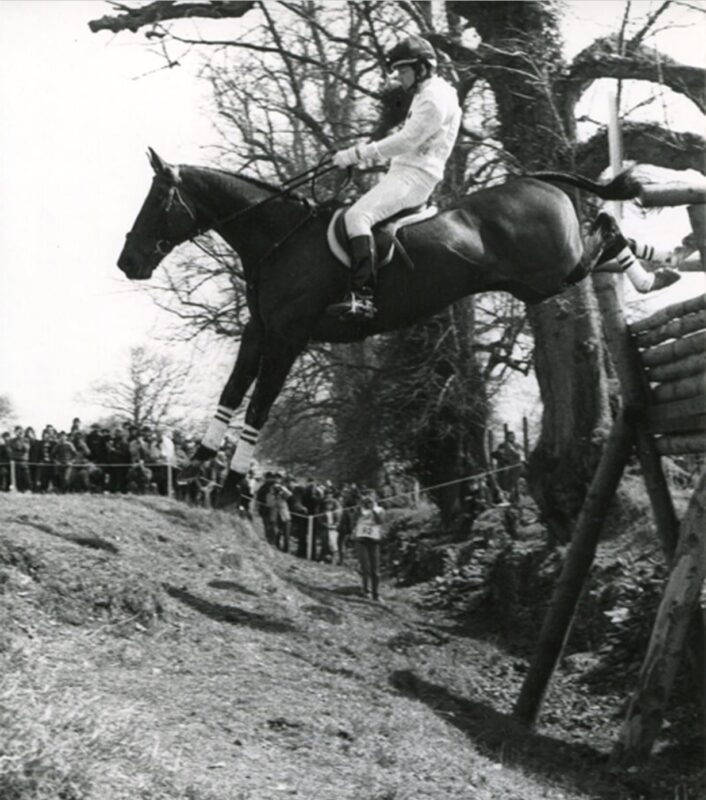Malcolm Hook, aka “The Voice Of The West,” has been a fixture in US eventing for a long time. The announcer, controller and technical delegate has been at it long enough to remember asking his late brother-in-law, Pete Costello, “Why build an Advanced course when we don’ t have Advanced eventers out here in the West?”
The Field of Dreamsy answer to that was, in effect, “If you build it, they will come.”
Which they did. And Malcolm has enjoyed a front row seat for much of the sport’s significant changes around safety, sophistication and participation.
What hasn’t changed is the reassuring effect of Malcolm’s ever-present voice throughout the day. ‘It’s funny. I get a lot of people – riders, coaches, parents – telling me they knew it was going to be OK when they heard my voice.’”
He’s reassuring in the moment and over eventing’s modern trajectory. His service to the sport included being an Area VII Chair and USEA Vice President. The Galway Downs regular has held key roles on many committees and continues to sit on a few, including the USEA course design safety committee and others.
Malcolm and his wife, Julie Costello Hook, own Talisman Farm in Aurora, Oregon. Julie coaches, trains and hosts educational events. Malcolm manages behind-the-scenes tasks, juggling that with about 20-25 announcer/controller assignments and typically 2-3 technical delegate jobs per year.
He suggests that things in the control tower are not always as under control as his calm voice makes it sound. At national competitions, Malcolm often does double duty as controller and announcer. FEI competition rules don’t allow that.
Juggling Act
Indeed, the controller’s role is a lot on its own. Horse and rider safety are the controller’s priority. That involves communicating information to all exhibitors, officials, volunteers and show management, ensuring horses and riders get the attention they need when there’s an incident and monitoring all the components for a smooth flow of traffic on cross-country.
When everyone gets around without refusals or falls, and on a relatively normal pace, the controller’s job is relatively easy. When they don’t, the controller’s quick assessment of the situation and judgement are critical.
The controller monitors each horse’s progress based on the reports from the startbox and jump judges and visually for parts of the course that can be seen from the tower.
Typically, Malcolm has driven the course in a golf cart to understand where the obstacles and challenges are. Stopping points where a pair would be held if needed are determined by the officials, and it’s the controller’s job to determine when that’s warranted.
“I find it very easy to keep track in my head of where people are because I’m announcing. I’ve just been talking about where a certain rider is. I just said, for example, ‘Rider 21 completed fence 15,’ so the commentary about what’s happening helps me track where they are on course.
“Controlling and announcing is a lot,” Malcolm continues. “It keeps me amused and I like to be busy.” Handling both tasks is a cost-saver for organizers, too, he adds.
Keeping track of riders is one thing. Keeping track of the three to five radios typically at his fingertips in the control booth is another matter. “My biggest problem is which radio I’m talking on. One is dedicated to veterinary and medical emergencies. Another is dedicated to the office. I’m typically using two channels at any moment. I have my moments… something like telling the fence judge at 7 to start the next rider! But I don’t dwell on those moments.”
After reporting on riders’ status all day, Malcolm admits he’s often stumped by his wife Julie’s end-of-the-day “who won” question. “I’ll get the start and finish time for 250 horses, update their scores and have an idea who appears to be the winner, then 20 minutes later I can’t remember!”
Tremendous Growth
“The growth of the sport has been tremendous,” he says. Going back to when Pete Costello suggested developing a circuit of Advanced level courses out West, Malcolm recalls Kevin Freeman being one of very few eventual Olympians to be based in the West.
“The fact that Tamie (Smith), Jil (Walton), Amy (Tryon) and Todd (Trewin) did that is really a big thing if you look at the demographics of the United States and the powerhouse areas being USEA II and III, and, earlier, Area I. The growth at the upper levels has fueled the lower levels as well, because without them, it would be very difficult to build the Advanced courses.”
He’s witnessed unforgettable moments. Like Bruce Davidson completing the Rolex (now Defender) Kentucky Three Day course in “an utter, horrible downpour and coming clear inside the time in a way you would not have known there was anything difficult about what he just did.”
Or any pair who flows through the track like “water flowing down hill,” Malcolm describes.
“It’s like you are looking at a stream going downhill and even if it’s a fairly steep run, over boulders, around rocks, the flow is effortless and appears inevitable.” Outings like that come up about 10 times a year, he guesses. They’re always a delight.
He has awe and appreciation for all. “I am impressed by anybody that will go out there and do this sport,” he says. “It’s something I can’t do. And the lower levels are really, for me, the center of the sport.”
“The upper levels are great,” he continues. “They are exciting and there is a lot of pageantry attached to it. But on a day-in, day-out basis, we can never overlook the lower levels. They’re the ones whose participation provides the money to build the courses that support the next Amy Tryon, the next Jil Walton, the next Todd Trewin or Tamie Smith, etc.”
Seeing young horses and riders advance up the levels is gratifying, too.
Looking ahead, Malcolm says he may opt out of the 2028 Olympic equestrian competition likely to be held at Galway Downs. He’ll be 81 by then and anticipates being ready to watch from afar.
“I am really pleased for Galway Downs, though, and especially for Robert Kellerhouse. It is a tremendous opportunity and, when looking at what else was available, really the only logical choice. It is going to be a huge boost to the sport.”

